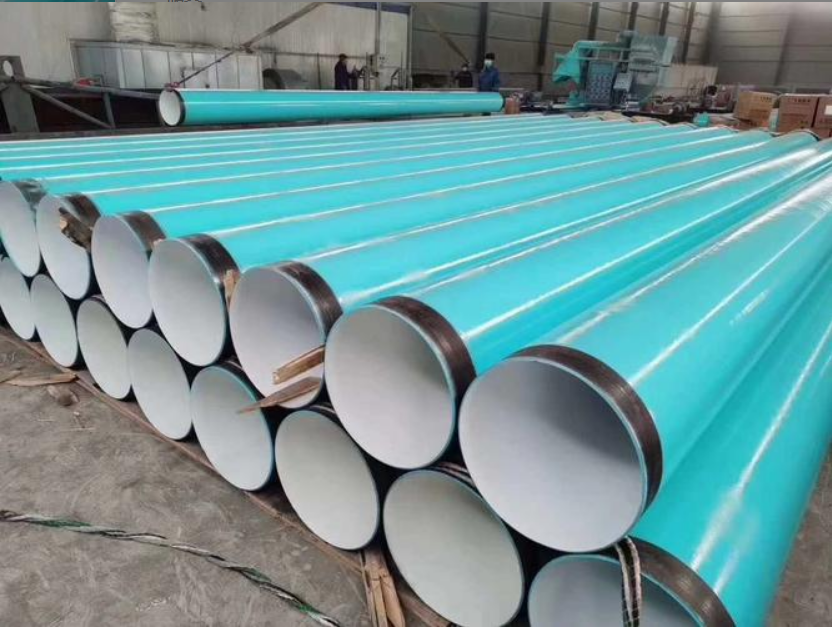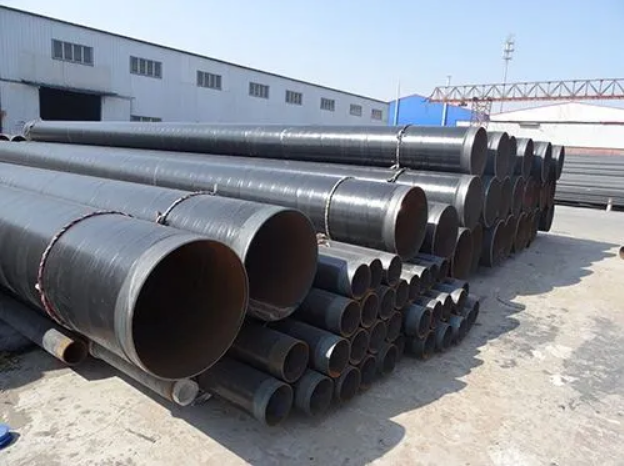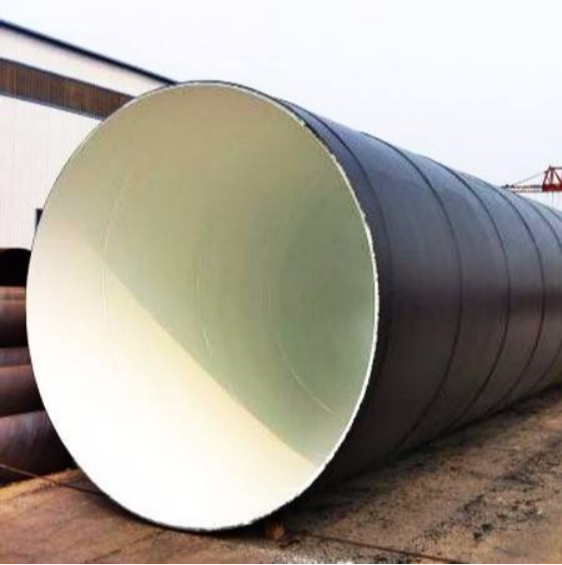Coating Effects & Benefits
1. Anti-corrosion performance: The coating can effectively isolate the direct contact between the pipeline and the external environment, prevent the erosion of corrosive media such as acid and alkali, salt spray, etc., so as to prolong the service life of the pipeline.
2. Abrasion resistance: Some coating materials, such as polyurethane, have excellent wear resistance and can resist the erosion and wear of solid particles in the fluid on the pipe wall.
3. Smoothness: The surface of the coating is smooth, which can reduce the flow resistance of the fluid in the pipeline, improve the transportation efficiency, and reduce energy consumption.
4. Aesthetics: The coating can be adjusted in different colors according to the needs to increase the aesthetics of the pipeline, and help to identify and identify different pipeline systems.
5. Environmental protection: Some coating materials meet environmental protection standards, non-toxic and tasteless, harmless to the environment and human body.
Fields of application
Coated pipes are widely used in the following areas:
1. Water supply and drainage system: such as urban water supply pipelines, sewage pipelines, etc.
2. Fire protection system: such as fire hose, sprinkler system, etc.
3. Industrial field: such as chemical, petroleum, natural gas and other industries of transmission pipelines.
4. Agricultural irrigation: such as agricultural irrigation pipelines, sprinkler irrigation systems, etc.
5. Construction field: such as water supply and drainage pipes, heating pipes of buildings, etc.
Specific examples
1. TPEP anti-corrosion steel pipe: This is a kind of pipe that combines 3PE anti-corrosion and outer wall fusion epoxy powder anti-corrosion technology, which has extremely high anti-corrosion performance and long service life. It is suitable for long-distance transportation of oil, water, gas and other buried pipelines, as well as process pipelines with corrosive media.
2. Plastic-coated steel pipe: With the steel pipe as the base material, a plastic layer is coated on its inner and outer surfaces through a specific process to improve its anti-corrosion performance and wear resistance. Plastic-coated steel pipes are widely used in municipal, chemical, petroleum, electric power, communications and other fields.
Precautions
When choosing and using coated pipes, you need to pay attention to the following:
1. Selection of coating materials: The appropriate coating materials should be selected according to the specific use and working environment of the pipeline.
2. Coating quality: ensure that the coating is uniform, smooth, no bubbles, no cracks and other defects.
3. Construction quality: The coating construction should be carried out in strict accordance with the relevant specifications to ensure that the combination of the coating and the pipeline substrate is firm.
4. Later maintenance: regularly inspect and maintain the pipeline, and find and deal with problems such as coating damage and peeling off in time.
Coated pipe
Coating Effects & Benefits
1. Anti-corrosion performance: The coating can effectively isolate the direct contact between the pipeline and the external environment, prevent the erosion of corrosive media such as acid and alkali, salt spray, etc., so as to prolong the service life of the pipeline.
2. Abrasion resistance: Some coating materials, such as polyurethane, have excellent wear resistance and can resist the erosion and wear of solid particles in the fluid on the pipe wall.
3. Smoothness: The surface of the coating is smooth, which can reduce the flow resistance of the fluid in the pipeline, improve the transportation efficiency, and reduce energy consumption.
4. Aesthetics: The coating can be adjusted in different colors according to the needs to increase the aesthetics of the pipeline, and help to identify and identify different pipeline systems.
5. Environmental protection: Some coating materials meet environmental protection standards, non-toxic and tasteless, harmless to the environment and human body.
Fields of application
Coated pipes are widely used in the following areas:
1. Water supply and drainage system: such as urban water supply pipelines, sewage pipelines, etc.
2. Fire protection system: such as fire hose, sprinkler system, etc.
3. Industrial field: such as chemical, petroleum, natural gas and other industries of transmission pipelines.
4. Agricultural irrigation: such as agricultural irrigation pipelines, sprinkler irrigation systems, etc.
5. Construction field: such as water supply and drainage pipes, heating pipes of buildings, etc.
Specific examples
1. TPEP anti-corrosion steel pipe: This is a kind of pipe that combines 3PE anti-corrosion and outer wall fusion epoxy powder anti-corrosion technology, which has extremely high anti-corrosion performance and long service life. It is suitable for long-distance transportation of oil, water, gas and other buried pipelines, as well as process pipelines with corrosive media.
2. Plastic-coated steel pipe: With the steel pipe as the base material, a plastic layer is coated on its inner and outer surfaces through a specific process to improve its anti-corrosion performance and wear resistance. Plastic-coated steel pipes are widely used in municipal, chemical, petroleum, electric power, communications and other fields.




